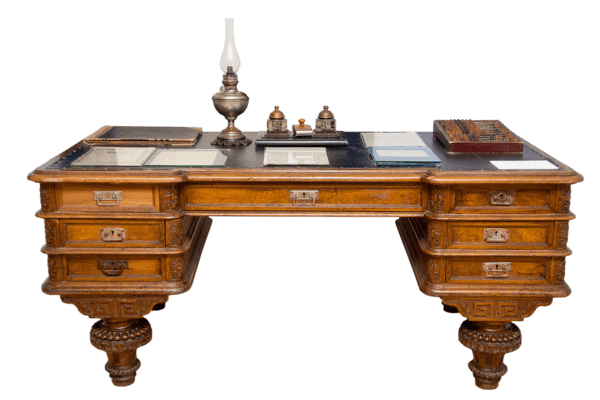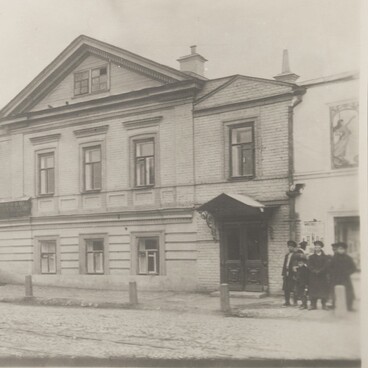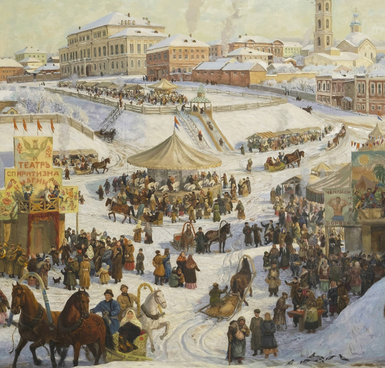This oak desk with carved wooden legs is from one of the offices of the Kazan zemstvo (local government) on Poperechno-Gruzinskaya Street, currently known as Zhukovsky Street. The building now houses the Ilyas Aukhadeyev Kazan Musical College, which kept this desk in one of its auditoriums for many years. The desk was transferred to the museum in 2005 as a valuable witness to the work of Feodor Chaliapin and his father in the Kazan zemstvo.
A zemstvo, or a local government, was a regional institution in pre-revolutionary Russia. The local government of Kazan occupied three rooms: the first was a correspondence office and a clerk’s office, the second was used by a bookkeeper and a secretary, while the third was designated for the chairman and three members of the zemstvo. Working within the same building were also the congress of magistrate judges of Kazan-Tsaryovokokshaysky district, the uyezd chiefs in charge of conscription and peasant affairs, as well as a pharmaceutical warehouse, a clinic, and some other institutions.
On June 20, 1886, the Chaliapin family had an important event: at his father’s behest, 13-year-old Feodor received an unsalaried post at the zemstvo. The boy quickly got acquainted with all the employees, went to work together with his father and felt very proud of this arrangement. He carried out all tasks assigned to him with efficiency and great care. As soon as a vacancy opened up in the department, Feodor Chaliapin was hired with a monthly salary of 10 rubles.
Both the father and the son got buried in work: they often stayed in the clerk’s office far into the night and had to sleep on the desks. The local government was chaired by the well-known Kazan landowner and nobleman of ancient standing Pyotr Pertsov, who, when he was a boy, met Alexander Pushkin in Kazan in 1833: Pushkin was friends with his brother — the poet Erast Pertsov. After devoting himself to public service, Pyotr Pertsov got promoted to the rank of Acting State Councilor.
Feodor Chaliapin remembered one of his colleagues in the zemstvo — a secretary named Alexander Asafovich Dudkin, who was a well-educated man, a member of the intelligentsia, and a talented writer. When Feodor Chaliapin returned to Kazan as a famous singer, he was always glad to meet his old acquaintances and colleagues from the Kazan zemstvo office.


